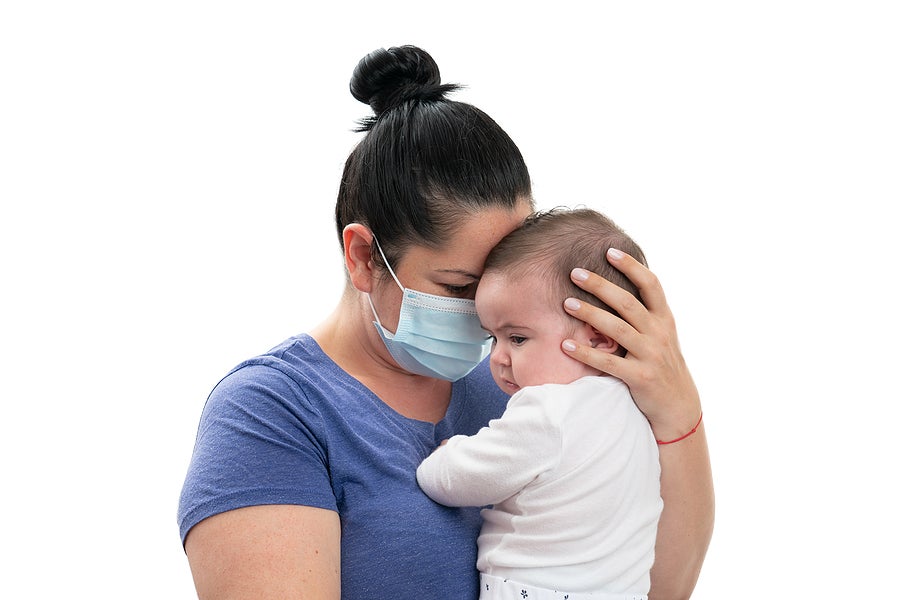Blog
-
New Research Confirms the Public Charge Rule Deters Eligible Immigrant Families from Using Public Benefits
Researchers at the Migration Policy Institute (MPI) released a commentary in December documenting the chilling effects of the public charge rule on immigrant families’ use of benefits. Sadly, the American Community Survey (ACS) data confirm concerns raised by experts and advocates that the new public charge rule would deter large numbers of immigrant-led households from…
-
CCF Welcomes New Communications Manager
The Georgetown University CCF team is happy to welcome Oyinade [OH-YIN-AH-DAY] Koyi as our new Communications Manager. In this role, she will work with CCF Communications Director Cathy Hope to share CCF’s research and analysis with you and others through our blog, website, state children’s health report card, social media and media outlets. Oyinade has a…
-
Documenting the Harm of the Decline in Pediatric Visits: A Survey and Report from the Institute for Child Success
The Commonwealth Fund continues to track changes in outpatient visits during the COVID-19 pandemic, with October 2020 data showing outpatient care generally returning to pre-pandemic levels after the sharp decline of nearly 60 percent in late April. But the data also show that visits for younger children remain substantially below the prepandemic baseline and visits…
-
New Grant Opportunity to Boost Well-Child Visits and Immunizations in Pediatric Primary Care
As part of our joint project with the American Academy of Pediatrics (AAP), Keeping Kids Connected to Care During COVID-19 and Beyond, we have been ringing the alarm bell about the troubling declines in well-child visits and immunizations because of the pandemic. Pediatricians and child health advocates have teamed up to educate and engage community…
-
Limited Postpartum Medicaid Coverage Extensions are a Missed Opportunity
States are continuing to push for extending Medicaid coverage for postpartum women beyond the current federal cutoff of 60 days after the end of their pregnancy. Just in the last month, three more states submitted waiver applications to CMS: Indiana, Georgia, and Texas. Before the end of the year, we submitted comments on Indiana’s limited…
-
Survey Shows Single-Parent Households with Young Children Bear the Brunt of COVID-Related Stress
COVID-19 is affecting every part of family life, and for parents of young children the financial strain, emotional stress, and burden of care are especially overwhelming. We know that the emotional wellbeing of parents affects their children’s development, especially in the early years of life. In a recent report of a weekly survey to about…
-
The End-of-Year COVID Relief Package: Medicaid and CHIP Highlights
After more than the usual end-of-session drama, the Consolidated Appropriations Act, 2021 (CAA) became law on December 27, 2020 (P.L. 116-260). The sprawling, 2,124-page opus includes not just badly needed COVID relief for millions of unemployed Americans but also funding for the entire federal government and protections against surprise medical bills for consumers with private…
-
New CCF-Commonwealth Paper Examines How Block Grant Financing Severely Harmed Puerto Rico’s Medicaid Program
My new paper for the Commonwealth Fund analyzes how Puerto Rico’s Medicaid block grant financing contributed to Puerto Rico’s overall fiscal and debt crisis and resulted in a Medicaid program that is far less generous than what is provided in the states. Puerto Rico’s experience thus offers critical lessons to federal and state policymakers about…
-
A Parting Gift for the Incoming Administration: “Good Guidance Practices”
This week—two weeks before the inauguration of a new President—the self-proclaimed “Good Guidance Practices” regulation issued by the outgoing Secretary of the Department of Health and Human Services (HHS) takes effect. As proposed in August, the regulation was not so good for Medicaid and CHIP. In its final form, published on December 7, the regulation…
-
Study on Intergenerational Health Mobility Provides Strong Case for Early Childhood Interventions
Examining how children’s health compares to the health of their parents can offer valuable insight into the individual, family, and community-level factors that affect a child’s health status. This is the aim of a new Health Affairs article from Jason Fletcher and Katie Jajtner at the University of Wisconsin-Madison, which seeks to bring an intergenerational…
-
CMS Releases Guidance on Unwinding the COVID-19 MOE
States and stakeholders now have the long-awaited CMS guidance on advance planning in Medicaid and CHIP for the end of the public health emergency (PHE). There’s a lot to digest in this 54-page State Health Official letter (SHO). It discusses what happens to the various pandemic-related authorities and waivers and what states must do to…
-
Advocacy Guide Outlines Strategies for Supporting Primary Care Practitioners in Medicaid Managed Care Networks During Pandemic
The pandemic has not been good for children or their physicians. Well-child and other non-emergency visits are down, so children are missing important screening benchmarks as well as immunizations. Pediatric practitioners who are paid on a fee-for-service basis have seen their revenues fall and the financial stability of their practices imperiled. The situation has improved…
-
What’s Happening to CHIP Enrollment During the Pandemic?
In 2020, at Georgetown University CCF and elsewhere, there has been a lot of discussion about and tracking of what is happening with Medicaid enrollment. Between the recession and the disenrollment freeze, Medicaid enrollment has trended upwards – a recent study from the Kaiser Family Foundation looking at Medicaid managed care enrollment in 30 states…
-
Medicaid Managed Care: The Case for Transparency in the Biden Administration
On the way out the door, CMS Administrator Seema Verma issued changes to Medicaid managed care regulations that, among other things, weaken the standards for measuring the adequacy of managed care organization (MCO) provider networks. These changes, which will be effective December 14, were adopted over the objections of CCF and other beneficiary advocates. They…
-
New CCF-Commonwealth Fund Report Highlights Long-Term Benefits of Medicaid Coverage for Pregnant Women and Children
A new report written by my colleagues Edwin Park, Allie Corcoran and I for the Commonwealth Fund examines and summarizes the growing body of research documenting the long-term benefits of Medicaid eligibility for pregnant women and children. Because Medicaid/CHIP expansions were phased in over time, and states reacted on different timetables to federal options and requirements,…
-
Medicaid Managed Care Transparency: Advocacy Around External Quality Review Reports
As anyone who cares about children’s health knows, it is important to know how Medicaid managed care organizations (MCOs) are performing for the children enrolled in their plans. Access to quality data on a plan-specific basis is a vital part of determining which plans are doing the job well and which plans are falling short.…
-
Can a Biden Administration Reverse the Rise in Uninsured Children?
A few weeks ago I blogged about how a Biden Administration could go about unwinding Medicaid Section 1115 work reporting requirement waivers. Since Section 1115 demonstrations are clearly in the purview of the Secretary of Health and Human Services, a Biden Administration is in the driver’s seat (within the confines of the statute of course!)…
-
“Improper Payment” Rates for 2020: Another Year, Another Attempt to Tarnish the Popular Medicaid Program
$100 billion—with a “b”—is a large number. So when the headline on the op-ed in the New York Post screams “Medicaid hemorrhaging $100B on Americans ineligible for the program” most readers will understandably frown and think: “This doesn’t sound good, even in a pandemic. What’s going on here?” The author, Brian Blase, is not a…
-
Medicaid Expansion Increased Preventive Care for Pregnant and Postpartum Women, New Study Finds
Medicaid expansion increased the use of key preventive health services by women before and after pregnancy, a new study published in Health Affairs found. The findings add to the evidence that expanding Medicaid coverage to all low-income adults does translate into more utilization of preventive care that can improve the health and wellbeing of women…
-
New Report Explains How Medicaid Expansion is Key to Ending HIV Epidemic in USA
As we live through the COVID-19 pandemic, our other challenging health problems haven’t gone away. In recognition of World AIDS Day and in honor of all those whose lives have been affected by HIV/AIDS, I would like to focus attention on public policy options that could help finally eliminate HIV in the United States. Long…





















